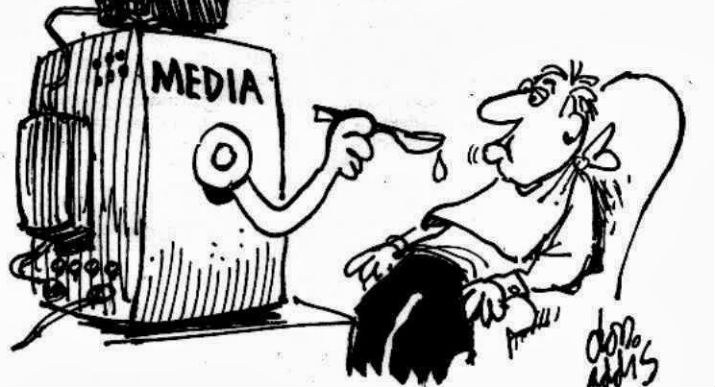The majority of the recent change is the result of advances in communications inter-connectivity. The ability of people to get a lot of information for free is very recent. Was this one of the biggest tactical blunders in history? Was this decision to give away access to knowledge for free a mistake?
Content and cost
How many companies provide their product for free online? The internet has habituated an entire world to expect content to be free. Content is really expensive to produce. It takes time effort money to produce. Those facts are causing tremendous change. We are producing more content at lower costs. There are two types of companies; the quick and the dead. We are seeing consequences of that.
The emergence of Google and the Facebook is the biggest threat to traditional media. Go back to even the early two thousands. There weren’t that many choices of where you were going to get your news. You had a few TV stations where you got your evening news. There were your big national newspapers and your local newspapers. Maybe you had magazine subscriptions. Most of it was run by people who were left of center.
Approach to information
There was kind of like a shared truth. Maybe a better description would be there was a sort of shared understanding of the news. There was generally a common set of shared facts. We had time to breathe. Back then a good story could last for days. People would think about it and they’d react to it. It was an interpretation of the facts where distinctions were made. Now a good story lasts two minutes, two hours if it’s really big too.
This is how profound the change is. Politico launched in 2007 because of the publishers’ assessment of the market. The decision was there wasn’t enough political coverage. Further, there wasn’t enough urgency to it. Finally, there wasn’t enough voice and depth to political coverage. Is that true today?
Instantaneous gratification
In 2007 that was key to the success, which was the reality of that moment. People were not thinking about politics on an hour-by-hour basis. They were not reacting so quickly. The news cycle still had some length to it. But now the amount of political coverage that the average person consumes is dangerous. As a species, we are not programmed to have this much of our information diet dominated by politics.
You go back 15 years ago maybe 5% – 10% of what you were consuming was politics. Now, if you’re a news consumer it’s all politics. And that’s not healthy. It has become so much more visceral instead of academic. It becomes much faster instead of sort of taking time to breathe and think about what the implications are; what else does this affect, what does the topic mean?
We’re probably years away from actually answering how profound is the change? What are the lasting effects on society? The new technologies we are using none of them existed pre-2007 really. These are all; they’re babies in terms of human history. In communications these are all baby products, and we’re treating them like babies.
Conclusion
We’re still very adolescent in our usage of these really cool technologies. If used right, they can be transformative in a very positive way. If abused, they could really grind up our country. We are still pretty irresponsible in our usage of them. It’s not just our kids. Over time we are kind of figuring out better boundaries and different ways self-regulate these devices. How we choose to control technology will have as much to do how it will impact the next twenty years of communications change and its impact on our culture.
